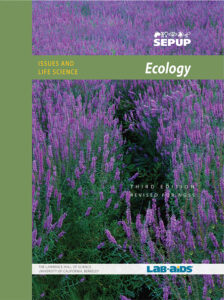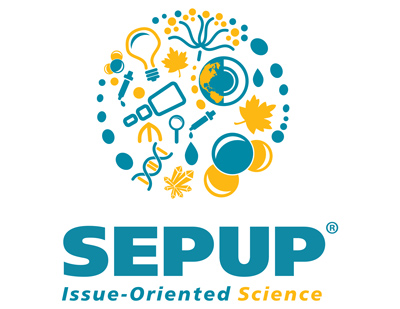Ecology: Student Links

Ecology
Science as a Human Endeavor
To learn more about the interests and accomplishments of diverse scientists and engineers, and how people with varied backgrounds contribute to and depend on the advancement of science and technology, visit the links below.
Victoria J. Orphan
Orphan studies microorganisms that consume methane on the ocean floor, bridging the Ecology and Geological Processes Units. Her work is helping to show how microbes can play a role in sequestering greenhouse gases.
Rachel Carson
Rachel Carson was a marine biologist, environmentalist and writer who alerted the world to the harmful environmental effects of pesticides. Her best-known book, Silent Spring, helped shape a growing environmental awareness.
Steward Pickett
Pickett is an ecologist and Director of the Baltimore Ecosystem Study. He is investigating how urban ecology can make our cities greener, cleaner, and healthier for all.
Robin W. Kimmerer
Dr. Kimmerer is plant ecologist and writer, and is the founding Director of the Center for Native Peoples and the Environment. The mission of the center is to create programs which draw onboth indigenous and scientific knowledge for the goals of sustainability.
Shahid Naaem
Shahid Naeem studies the ecological and environmental consequences of biodiversity loss and invasive species. His motto is “Ecology with no Apology.”
Teresa Mathews
Teresa Mathews is an environmental scientist who studies chemical contaminants in aquatic ecosystems, and is interested in understanding the biological and chemical processes that affect the accumulation of contaminants in aquatic food webs. Her research bridges the Chemical Reactions and Ecology units.
The Global Invasive Species Database
Find current information about the ecology, distribution and management efforts of the Nile perch on The Global Invasive Species Database.
Use this website to figure out what kinds of plants and animals are in your own environment.
This website will help you identify birds.
Apps that will help you identify wildlife
There are several apps listed that will help you identify many different kinds of wildlife
Kudzu
Kudzu was classified as a pest in 1972 by the U.S. Department of Agriculture. Find out more at Alabama’s Cooperative Extension site.
Did you know that people make kudzu baskets, kudzu jelly, and kudzu hay? You can link to recipes and other kudzu innovations at the University of Alabama Center for Public Television & Radio site.
Asian Tiger Mosquito
Information on the Asian tiger mosquito from the US Department of Agriculture.
Controlling the Asian Tiger Mosquito
Scientists discuss ways to control the Asian tiger mosquito.
Norway Rat
Description of the global impact and control of Norway rats by the Global Invasive Species Database.
Biokids from the University of Michigan discusses the ecology of Norway rats and their impact on people and other organisms.
Hydrilla
Nonindigenous Aquatic Species: Hydrilla
Learn why this aquatic plant, also known as water thyme, is considered a problem. Site maintained by U.S. Department of Agriculture‘s Center for National Invasive Species Information Center.
University of Florida, Center for Aquatic and Invasive Plants: Hydrilla
What does research say about getting rid of this invasive plant? What can you do to help? Find out this and more at the University of Florida’s Center for Aquatic and Invasive Plants site.
Asian Carp
Asian Carp Threat to Great Lakes
The National Wildlife Federation discusses the threat that the Great Lakes are facing from the potential invasion by Asian carp.
The U.S. National Park Service provides an overview on the ecology and spread of Asian carp.
Purple Loosestrife
Find current information about Purple Loosestrife on the U.S. National Park Service Website.
Information about purple loosestrife from the National Agricultural Library of the U.S. Department of Agriculture
Starling
Cornell Laboratory of Ornithology: European Starling
You can listen to the sounds of a European starling while learning about its diet, habitat, and nesting behavior. Site maintained by Cornell University’s Lab of Ornithology.
Animal Diversity Web: European Starling
Find the European starling’s biological classification and much more at this site supported in part by the University of Michigan’s Museum of Zoology.
Burmese Python
The U.S. National Park Service documents the spread of and problems caused by Burmese pythons in Everglades National Park in Florida.
Information about the Burmese python from the Florida Fish and Wildlife Conservation Commission.
Read more about prairies in North America at the National Geographic website.
Learn about bison and their role in prairie ecosystems by visiting this website.
Identify the living and nonliving components of an ecosystem and watch a short video (in English or Spanish) on competition for resources.
Dynamic Map of Zebra Mussel Distribution
You can find out how far zebra mussels have spread each year in the United States on this interactive map produced by the U.S. government.
Sherlock Bones: Virtual Owl Pellet Dissection
Perform a virtual owl pellet dissection on this site.
Activity 10 / CA Activity 13
Interactions in Ecosystems
Use this online computer simulation to explore how predators, prey and producers interaction in an ecosystem.
Activity 14 / CA Activity 17
Effects of an Introduced Species
Two short videos for introducing the Hudson River research study on zebra mussels can be found at this website.
Use this link to access the data on the introduction of the zebra mussel in the Hudson River.
Activity 15 / CA Activity 18
Too Many Mussels?
Invasive Species: Zebra Mussel Profile
The latest information on the zebra mussel, including laws and news, can be found at this site.
This site has links to different websites that have more information related to zebra mussel.
Invasive Species in the United States
The National Invasive Species Council is in charge of controlling invasive species within the U.S. and restoring ecosystems impacted by evasive species.

